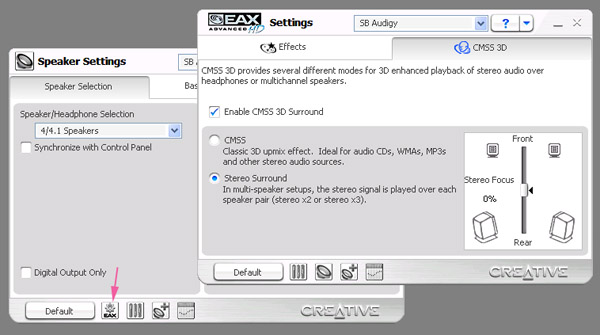 |
|
|
Popular topics on this page:
Sound Blaster with 2 identical outputs
Nikko STA-5010 overhaul
Hangman paradox
Is it illegal to annoy people on the Internet? (H.R. 3402)
How to record Internet radio without special software
Did Jesus really exist?
Double truth?
Zeiss Ikon oder Zeiss Nikon?
Kawaphoto Nikon lens to Canon EOS body adapters
Too much Bonferroni? Against overuse of Bonferroni correction
Astronomical photographs: Orion Nebula
Scroll down or press Ctrl-F to find other topics, or check previous months.
BOOK SALE - I'm selling off some scholarly books via Amazon Marketplace. Have a look!

|
2006
January
29-31
|
TIP goes big-time
 TIP (Technology Improving Performance)
is a software package that teaches you how to
manage employee performance, then helps you manage the hiring
and evaluation process.
It's especially good in 2 situations: (1) when managers don't know a lot about
performance management, and (2) when they do, but they need help getting a whole
organization to do things in a uniform style.
TIP (Technology Improving Performance)
is a software package that teaches you how to
manage employee performance, then helps you manage the hiring
and evaluation process.
It's especially good in 2 situations: (1) when managers don't know a lot about
performance management, and (2) when they do, but they need help getting a whole
organization to do things in a uniform style.
John Brantley designed it and I did the programming.
It has been well received by a select group of initial customers,
and now the manufacturer, JTB Communications, is going for a much
bigger market.
Look at www.tipsoftware.com over
the next few days and you'll see big changes.
You'll also see ads in Fortune Small Business and other magazines.
This is software with knowledge built in, an up-and-coming genre.
It's not artificial intelligence, but it is knowledge representation.
Permanent link to this entry
DVD, plus or minus
The nice thing about standards,
as Bob Stearns is fond of saying,
is that we have so many of them to choose from.
Yesterday I went shopping for recordable DVDs. Melody has been copying our videotapes
onto DVDs using our Panasonic DMR-ES30V VHS/DVD recorder (which works like a charm).
We were using Imation 8× DVD+R discs.
Well... Now the stores are full of 16× DVD+R discs, which are packed with notices
that you may have to update your firmware to use them.
We bought some 8× discs on closeout and saved a bundle. They're from Hewlett-Packard
and have gaudily painted tops. Actually, I like this because the paint will keep markers
from soaking into the plastic, and they look so funny (purple and white) that they won't
be mistaken for CDs.
Our drives allegedly support both DVD+R and its predecessor, DVD-R, both 8× and 16×.
But what a mess!
I don't like having to choose between at least four kinds of recordable DVD, some of
which are probably not compatible with my equipment; it's all the more bothersome
that nobody
can be sure. "Here, buy these 16× DVD+R's; they'll probably work..."
Remember 1965? No? That was the year Philips introduced
cassette tape, which
displaced all other consumer audio tape formats within about a decade. What Philips did right was
insist on compatibility. They only licensed the cassette patent to people who
were going to build 100% compatible tape recorders. As a result, all cassettes are
compatible with all cassette machines. (Well, except for chrome and metal tape... And even then,
they worked, just not optimally.)
Competing 8-track tape, on the other hand, used the same physical format as slightly earlier 4-track and 1-track
cartridges; and reel-to-reel tape existed in four major formats (full track, two-track mono,
two-track stereo, and four-track stereo) and multiple reel diameters (few recorders took
10 1/2-inch reels, and quite a few didn't even take 7-inch reels).
In the 1950s there had been another kind of 2-track stereo with one head about an inch
farther along the tape than the other, so if you played these tapes on a newer machine,
you'd hear one channel time-delayed. At least they all used the same tape.
But you begin to see why they all died out.
If only DVDs could be like cassettes.
I'm very busy and probably won't upload any more entries until February 1. See you then!
Permanent link to this entry

|
 |
2006
January
28
|
Too much Bonferroni?
Against overuse of Bonferroni correction in statistics
Now for a sample of what I think about at the office...
There's reason to suspect that some scientists are
failing to make discoveries
(or rather, are making discoveries and then throwing them away as insignificant)
because of a mistake of statistical method.
At least, that is the argument made by
Thomas V. Perneger in
this article
in British Medical Journal, which you can read on line.
About a year ago I wrote about the importance of
statistical significance tests.
If you take random samples of any two groups, and then make measurements on them,
there's always some chance that your measurements will be different just because
of random sampling, not because of any real difference between the groups.
Knowing the size of the difference, the size of the samples, and a few other things,
you can calculate the probability that this is so. It's called the P value.
Scientists usually consider a result significant if P < 0.05,
that is, there's less than a 5% chance that the result is purely a sampling effect.
Well... Obviously, if you test 5 random samples instead of just one, the odds of a
false positive are 5 times as high.
So you should divide the significance criterion, 0.05, by 5, and use 0.01 as your new criterion.
That is called Bonferroni correction after the statistician who invented it.
Bonferroni correction only became common about ten years ago. It is now part of "cookbook statistics."
People advise each other, "If you make N measurements, you must divide the significance threshold
by N." And that requires them to get P values that are often almost impossibly low.
So they conclude their results are insignificant after all, even when they get quite reasonable
P values such as 0.02 or 0.01.
Enter Dr. Perneger. His point is that
Bonferroni correction assumes all the measurements are testing one hypothesis,
namely that the two groups that you sampled are alike in every way.
Doctors don't do Bonferroni correction on your blood test if it measures 30 items instead
of just one.
The reason is that they have a separate hypothesis about each of those 30 items.
There is still a risk of getting a false positive on each of them, but since these
various false positives would be different errors,
there's not much point in trying to combine their probabilities.
Instead, evaluate each one on its own merits.
Neither should researchers do Bonferroni correction when they make multiple measurements
on the same data set to test multiple hypotheses.
Very simply: The worth of an experiment does not diminish if you do another
experiment with the same data set on the same day.
Incidentally, Bonferroni's name is often misspelled in handbooks.
I've checked it carefully. Here
is an authoritative article on Bonferroni correction, with references.
Permanent link to this entry

|
 |
2006
January
27
|
Mozart's 250th
|
I'm too busy to write much, but I'd be remiss if I didn't commemorate
Mozart's 250th birthday.
To hear a bit of his music, click
here.
That's a snippet of Eine Kleine Nachtmusik
from
Sky: The Mozart Album,
on which the innovative fusion band Sky
joins forces with the Academy of St. Martin-in-the-Fields, London.
I think Mozart would have approved.
|
|

|
Permanent link to this entry

|
 |
2006
January
26
|
The Orion Nebula

Finally, the first astronomical photograph of the new year –
or at least the first one to be released.
I took quite a few last night, and this is a very rough presentation
of one of them. I haven't combined frames or subtracted a dark frame yet.
This was taken with a Nikon 300-mm f/4 ED IF AF lens and a Canon EOS Digital
Rebel body, joined by a
Kawaphoto adapter,
and piggybacked on my Meade LX-200 autoguided with an SBIG ST-7.
Kawaphoto's bronze adapter works much better than the aluminum one I was using previously.
No Nikon-to-Canon adapter is perfect.
The reason is that the Nikon lens is held to the adapter by three springs, and in an adapter
(unlike a real camera body) there isn't room for good springs.
Instead, three prongs of the adapter itself have to be bent slightly and used as
springs. Bronze works a lot better than aluminum, but even bronze isn't as strong as a
real Nikon lens mount. If you pull hard enough, the lens will begin to separate from
the adapter and give you an out-of-focus picture.
Fortunately, "hard enough" is a great deal more than the weight of the
Digital Rebel body – which was not the case with the aluminum adapter I used earlier.
It's still important to support the lens, not the camera, when the lens weighs appreciably
more than the camera body. A Nikon body can support a Nikon 180/2.8 lens; a Canon body with this
adapter cannot.
Incidentally, M42 (Pentax screw thread) to EOS adapters do not have this problem. They do not
rely on springs and are intrinsically as strong as any Canon mount.
Kawaphoto sells those too.
Permanent link to this entry

|
 |
2006
January
25
|
Various & sundry
Besides yesterday's odd news from the photo industry, sources are reporting that
sales of digital cameras are decreasing too.
Most people who want one have found one that's good enough for their purposes.
You can no longer sell them a new one every year with more megapixels.
If you enjoy seeing quackery debunked, you'll enjoy
Douglas Self's essay on subjectivism
in audio. Lots of good, clear thinking there.
Some monasteries support themselves by selling farm or garden products, baking bread, or
what have you. The Laser Monks, however,
sell toner cartridges. They're real Cistercian monks. Worth a visit!
Speaking of things ecclesiastical, a group within the Episcopal Church wants to
canonize Thurgood Marshall (declare him a saint).
Mr. Marshall may have been a good Supreme Court justice, but a saint?
The news release says he "didn't speak publicly about his faith," which is an odd
characteristic for a nominee for sainthood.
What's doubly odd about all this
is that the Episcopal Church does not canonize people at all.
On a more serious note, I've just found out the name of something I needed a name for:
spiritual gluttony.
That is the state of a person who seeks religious experiences for their own sake rather
than as a way to get closer to God.
The term was introduced by St. John of the Cross (1542-1591).
Permanent link to this entry

|
 |
2006
January
24
|
Zeiss Ikon oder Zeiss Nikon?
 I don't know which is stranger, the things that are disappearing
from the photographic scene or the things that are appearing in their
place.
I don't know which is stranger, the things that are disappearing
from the photographic scene or the things that are appearing in their
place.
This month we've already noted the demise of
Minolta (entirely)
and of Nikon film cameras
except the F6.
Now we learn that Contax and Yashica
are also gone.
Although I never owned a Contax, I got a good look at them at a photo show a few years ago
and came away feeling that Contax SLRs had inherited the spirit of the Olympus OM series.
Now it gets stranger.
A couple of the excellent lenses that Zeiss used to make for Contax will now be
offered in Nikon mount, manual-focus.
(Not Canon because all Canon lenses have electronic diaphragms, and these Zeiss lenses are all-mechanical.)
(These are not the East German Zeiss Jena lenses that used to be offered in M42 screw mount.
Those are economy lenses, better than anything else in their price range.
These, however, are truly excellent West German Zeiss lenses from Oberkochen,
equal to or better than Nikon's and Canon's best, and priced for the rich.)
Meanwhile, the Contax/Yashica lens mount will live on in a camera
made by Braun.
Stranger yet, Zeiss is introducing its own
rangefinder 35-mm camera system,
the Zeiss Ikon,
and
opines that 35-mm film will continue to be available
for a very long time.
Oberkochen wird wahrhaftig die Hauptstadt des photographischen Atavismus!
Permanent link to this entry

|
 |
2006
January
23
|
Double truth?
Yesterday's entry on the real historic existence of Jesus brings up a deeper question.
Many churchgoers today, and many academic theologians of half a century ago, have assumed
that Jesus belongs to the realm of faith, not fact, and when we talk about Him,
we're not really talking about history.
I don't just mean that theological truths are distinct from historical ones
because they cover somewhat different subjects, the way
physics is different from chemistry.
Nor do I mean that the Bible is not primarily a history or science book, or even
the possibility that some statements in the Bible or metaphorical.
All of those statements make sense.
I mean something much less sensible.
I mean the notion that the same statement can be true in one realm
and false in the other one.
That is, contradictions are OK.
Or – a bit less radically – you might say that
the two realms never touch at all; there is no point of contact
between "faith" and "facts"; hence nothing in either one of them can
affect the other.
That gives you a nice carpet under which to sweep any and all difficulties,
but I think it's foolish and intellectually dishonest.
We're talking about what philosophers have called the double-truth theory.
Doublethink is so familiar to educated 20th-century churchgoers that
my attack on it may strike many of them as misguided.
Doesn't everybody know that "faith" and "facts" are different realms
and that never the twain do meet?
No. In my opinion, the double-truth theory is the last resort of someone who
thinks his cherished beliefs are false but wants to cling to them anyway.
That is, it's a form of hypocrisy, on the same level as the liar who says different
things to different people, or the embezzler who keeps two sets of books.
And it's familiar to us as the epistemology of
"Yes, Virginia, there is a Santa Claus,"
the famous newspaper editorial that preserved Santa by moving
him into some kind of imaginary faith-realm.
Even though I'm a Christian, I think an honest atheist is more respectable
(and even more likely to make it to Heaven, by finding God at the last moment)
than the hypocritical churchgoer who says the right things in the realm of "faith,"
but keeps "faith" in a compartment separate from reality.
But wait a minute. The Bible and traditional Christianity have always said
that faith is important, in fact essential. Without faith, you're lost.
Where does that leave me?
I contend that "faith" in the Bible means "trust" and denotes a relationship.
I trust God and I trust my wife.
But I don't keep either of those trusts in a compartment immune to external facts.
On the contrary, faith is based on facts.
I have to take some things on trust from my wife, and some things on trust from God,
because I can't verify them directly.
But I began to trust God and Melody because of what I knew about each of them.
Anyhow, if you're going to have a compartmentalized mind, why stop at two
compartments? Imagine the possibilities of dividing reality up into any number
of realms, each of which is at liberty to contradict the others.
Then you could believe any number of contradictory things at the same time,
and the possibilities for confusion would be unlimited.
Permanent link to this entry

|
 |
2006
January
22
|
Did Jesus really exist?
Of course He did, despite
this silly lawsuit
presently going on in Italy.
It reminds me of the old joke:
"Archeologists have discovered that Julius Caesar didn't exist.
It was another guy with the same name."
The point of the joke is of course that if there was somebody named Julius Caesar,
and he did at least a large part of what's attributed to Julius Caesar,
then that person was the Julius Caesar of history.
The same goes for Jesus.
Somebody founded Christianity, and why shouldn't his name be
what everybody has always said it was?
This is actually a point of logic, not history.
Just in case somebody unfamiliar with ancient history has just tuned in,
I must emphasize that there's no doubt that Jesus existed.
He left behind a huge crowd of followers, and besides Christian writings, he's also mentioned
by the Roman historian Tacitus
and and other ancient non-Christian writers.
Nonbelievers only challenge
Jesus' divinity, not His existence. In the same way, non-Muslims don't try to deny
that Mohammed existed. And non-Romans don't try to deny the existence of Julius Caesar.
Permanent link to this entry
Tech humor
Electronics engineer Douglas Self has an
excellent web site
including some amusing items.
Don't miss his collection of historic accounts of
monowheel vehicles
(wheels that you ride in, not on),
and his
failed audio projects.
Permanent link to this entry

|
 |
2006
January
21
|
How to record Internet radio
Apart from some hard work on my research
(which was done by walking around, thinking, and looking worried, not by sitting at a computer),
my main technical triumph of the day was figuring out
how to
record Internet radio without special software (to produce WAV or MP3 files).
Basically, you just select Stereo Mix or What U Hear as the signal source.
If neither of those is on the menu, check Options, Properties in the Windows Volume Control.
Permanent link to this entry
Two financial tidbits
These are from Suze Orman. I haven't run the numbers on the
first one myself yet...
(1) Beware of excessive IRA contributions.
Income tax rates are very low right now, and there's a rising federal deficit.
That means taxes are likely to go up in the future, and this can eat up the
saving that you get by tax-deferring your income, unless you're sure you'll
be in a much lower bracket then than now. (And, I might add, sure that there won't be a
national sales tax.) If you have debts, it's better to use your money to reduce them now.
(2) Put your children on your credit cards as authorized users and they will
inherit your FICO score; throughout adulthood, they'll have an unusually long and good
credit history. This applies only if your own credit is good.
If you have financial problems, take your children off your credit cards so that
the drop in your own score won't propagate to them.
Permanent link to this entry

|
 |
2006
January
20
|
New genre?
The proper use of teenage boys: Cathy and Sharon recommend
this humorous video, and
this one.
They are relatively mild instances of the outré humor that is
characteristic of the younger generation on the Internet.
A wilder example is
this, and then
of course
this.
This kind of humor is almost entirely nonverbal and very fast-paced.
Cathy thinks it won't last long, and in the future, cultural historians
will have to explain it to audiences, as they do some of the zany humor
of the 1920s.
Permanent link to this entry

|
 |
2006
January
19
|
End of an era for Minolta too
We'll probably remember 2006 as the year when a lot of the photographic industry
disappeared.
Close on the heels of
Nikon's discontinuation of most film cameras comes
the
complete shutdown of Konica Minolta's film and camera business.
Konica Minolta will continue to make copiers and laser printers,
and Maxxum (Dynax) lenses will work on new digital SLRs to be made by Sony.
Minolta made fine cameras.
They had the first successful autofocus SLR and, earlier, the classic
SRT line of conventional film cameras.
(Melody's parents gave her an SRT101 as a high-school graduation present,
and it has served us well.)
Notable about the SRT line is that its lens mount, adopted in 1964, continued in
production until very recently with no change,
and plenty of the lenses (now called "Minolta MD") are still available new.
My own favorite conventional SLR, the Olympus OM-1, is, internally, a
miniaturized Minolta SRT, or so I'm told.
Who's next? Kodak, Fuji, and Ilford are still making film. Buy it while you can...
Permanent link to this entry
Where the Covingtons were

The map shows where the Covington family name was found on the 1881 British census.
You're looking at England and Wales; there were no Covingtons in Scotland but I've trimmed
off that part of the map.
As you can see, everyone was still relatively close to the medieval village of Covington
(just south of RAF Molesworth between Huntingdon and Cambridge).
I think the two marked counties are Huntingdonshire and Cambridgeshire, but I haven't
actually checked a map. Maybe a British reader will write in and let me know.
The map was generated by
Surname Profiler,
a project of University College London.
I also checked Melody's family name, Mauldin, and didn't find it at all.
The spelling may have been altered recently from Maldon, which is found
in several places; it comes from the Old English for "hill with a cross" and was
given to several villages in different parts of the country.
My mother's maiden name, Roberts, is very common in Wales but not elsewhere.
Her mother's maiden name, Trawick, is Cornish but did not show up on the
1881 census at all.
Permanent link to this entry

|
 |
2006
January
16-18
|
Short notes
I'm too busy to write much (it's the mid-January crunch!) but here are a few thoughts...
The strange way of making sandwiches that I reported a few days ago
may just be an instance of the mechanical way in which immature workers work.
Notoriously, teen-age part-timers and some other entry-level employees seem to think that if
they do their small part of the job, it doesn't matter whether or not the ultimate result
is achieved.
At the other end of the age scale, the reason retirees are so much in demand for service jobs –
when they'll take them – is that they are result-oriented and good at recovering from
minor foul-ups.
I'm having fun using Adobe Audition to process sound files, and I'm gradually adding
Audition material to my audio pages.
There could possibly be
income
tax on assets in online games such as World of Warcraft.
I mean a real tax from the U.S. government, not a pretend tax inside the game.
These games have internal economies in which you can earn "gold" by trading or providing services.
This "gold" (and other game-related assets) can be sold to other players for real money.
Accordingly, even though it is not money in the real world, it has a market value
in the real world, just like stocks, options, or futures.
And some people apparently amass huge amounts of game-related assets and make their living
selling them for real money. This practice is known as "gold farming."
The counterargument is that only the sale for real money should be taxable, not the acquisition of the
virtual assets themselves. I don't know how it will turn out.
Personally, I'd rather see people be taxed for spending money than for earning it.
From Britain, we have yet another story of a
tattletale parrot.
Here's a good web page on Bible translation.
(I have not read all of it and therefore cannot endorse it, but it looks useful.)
My own talk, about
how the Bible came to us,
drew an unexpectedly large crowd of 85 people.
I'll probably give a talk on Bible translations (how to choose and use them) later in the spring.
Need to mail CDs or DVDs
without spending a dollar per disk for packaging? Follow the link,
and use this coupon.
Permanent link to this entry

|
 |
2006
January
14-15
|
How not to sell sandwiches
Cathy went to a sandwich shop the other day and
saw the following strange procedure being followed:
(1) Make sandwich.
(2) Wrap sandwich in plain wrapper with no indication of what's in it.
(3) Place sandwich in pile of sandwiches in no particular order.
(4) Expect cashier to guess which sandwich belongs to the customer.
As you might guess, there was a crowd of unhappy customers who had
been given the wrong sandwiches.
Cathy's sandwich was lost altogether and had to be remade.
But the sandwich-maker and the cashier never seem to have realized what was
causing their problem.
I discussed this with several psychology researchers, and we think it may be
an instance of a
theory-of-mind deficit.
Some people can't keep track of the contents of other people's minds.
In particular, the sandwich-maker seems to have been unaware that the cashier
didn't have access to his memories of where he put each sandwich.
But it's odd that the cashier didn't point out the problem.
Or it may have been some strange kind of game, each worker trying to get the
other one in trouble.
Permanent link to this entry
Short notes
Fame thrust upon us:
Our
Basic
Information About Christianity web page was made required reading for a
comparative religion course at a
high school up north,
and we got 2600 visits through their link.
That must be a big comparative religion class!
Speaking of which, I'm going to give a talk titled
Where did the Bible come from, and can we trust it?
at Beech Haven Baptist Church tomorrow afternoon (5:30 p.m., Sunday, Jan. 15).
Marijuana in the Bible?
If you like misinformation, consider the latest odd archeological theory:
that Jesus healed people by anointing them with marijuana extract.
Newspaper article
here;
lengthy debate
here.
It is true that the ancient Hebrews had an herb called qaneh bosem "sweet cane," and that
qaneh bosem sounds a little like the Greek word kannabis "hemp."
But the words don't quite match up (why wasn't it kanebos?) and there's basically
no other evidence that the theory is true. Anyhow, even if it was hemp,
not all varieties of hemp are strongly
intoxicating.
I invite you to click on the second of the two links and look at the quality of the argumentation
on both sides. One is scientific; the other, fanatical.
I would say, "What are they smoking?" but we already know...
Have you ever wondered what goes on in multi-level marketing meetings?
The emotional commitment required by such organizations has always put me off;
if the products are so great, why aren't they sold in stores, and why are mind
games necessary?
Well, here is
someone who claims to have found that people in the meetings were lying about their success.
Maybe they were planted, in collusion with the suppliers – fake supersalesmen put there
to make the ordinary salesmen believe they can be super.
Word to the wise: No business venture deserves an emotional commitment beyond what is
clearly justified by reason. People who want to manipulate your emotions are up to no good.
Credit card industry shrinks: As readers know, I'm an incisive critic of the credit card
industry, which has gradually slid into practices formerly defined as loan sharking.
Well, the latest
news from Britain is that
the use of credit cards there (for borrowing, as opposed to monthly charges) is starting to decline.
I predict the same thing here within 6 months.
Permanent link to this entry

|
 |
2006
January
12-13
|
End of an era for Nikon

|
|
I suppose my Nikon cameras have suddenly become rare collector's items.
Nikon has
announced
that they are suspending production of all film cameras except the F6
(shown here).
In addition, the FM10 will continue to be made for them by Cosina,
but it is actually a Nikon-mount version of a generic camera body that
also has versions for other brands.
Nikon digital cameras, on the other hand, will remain abundant.
For everyday photography, they are my favorites, although
Canon DSLRs
perform better for astronomy.
And that means almost all the lenses will remain in production too,
since they fit Nikon digital SLRs.
|
Permanent link to this entry

|
 |
2006
January
11
|
More needless panic
CNET
continues to spread needless alarm about the new law against
sending anonymous Internet messages "with intent to annoy, harass, threaten..."
(see yesterday's entry, below),
while backing down from some of the outright errors they published yesterday.
I do not think the new law is unconstitutional.
There is a way of misinterpreting it that would be unconstitutional,
but that's exactly what the Constitution blocks.
I don't even think it criminalizes much, if anything, that wasn't already illegal.
It certainly doesn't criminalize anything a civilized person would want to do,
even when involved in a dispute or bitter controversy.
But the panic on CNET shows me that the veneer of civilization over the Internet may be very thin.
Why are so many people afraid of penalties for anonymous bullying?
We went through this a decade ago, when the University of Georgia was promulgating its
computer network rules.
Some people just couldn't deal with the fact that,
when you're on the Internet, you still have responsibilities.
Permanent link to this entry

|
 |
2006
January
9-10
|
Short notes
Windows updates: Get 'em today. There are more, besides last week's updates.
Odd architecture:
Cathy, who often has
odd experiences on campus,
reports today that
Joe Brown Hall contains a number
of architectural anomalies,
including a small room with a staircase that leads upward into a wall
(the M. C. Escher Suite?);
several rooms renumbered with Post-It notes;
and a note that room 246 is nowhere near room 245, not even on the same floor
(or something like that).
Bad software: Why do microcontroller manufacturers seem to feel
compelled to show us they don't know how to program a PC?
This week I'm quoted extensively on that subject in
Jack Ganssle's column on
Embedded.com,
the online site for microcontroller experts.
Old voice: At www.tinfoil.com you can
hear, among other things, the oldest surviving audio recording, made by one of Edison's staff
in 1878.
Permanent link to this entry
Is it illegal to annoy people on the Internet?
It is being widely and, I think, incorrectly reported that it now
illegal to annoy people on the Internet.
See for example
this article.
[Note added Jan. 21:
It has always been illegal to
harass or threaten people through the Internet or any other means.
The only question is about the word "annoy" in a newly passed law,
because it may make it illegal to do things, in good faith, that somebody else happens to
find annoying.]
The potential problem is that it's up to the "victim" to decide what's annoying.
Suppose I decided to be annoyed by everything that mentions elephants, or everything displayed
on my screen in blue type – could I prosecute anyone sending me such messages?
The critical words in the new law (H.R. 3402) are these:
Whoever...utilizes any device or software that can be used to originate
telecommunications or other types of communications that are transmitted, in whole or in part,
by the Internet... without disclosing his identity and with intent to annoy, abuse, threaten, or harass any person...who receives the communications...shall be fined under title 18 or imprisoned not more than two years, or both.
This is a law against anonymous harassment via Internet, and as far as I can see, it adds almost
nothing to existing harassment laws.
The biggest flaw that I see is that anonymous harassers can be very hard to catch.
But this particular law is aimed at cyberstalkers whose identity is fairly obvious.
Some of them want to be caught.
Is it illegal to annoy people? No. It is illegal to try to annoy people.
Look at the words "with intent to." That makes all the difference.
What is illegal is malicious intent, not unwelcome effect.
Society, not the victim, decides what is malicious intent.
Also, criminal law is interpreted narrowly.
If there's any vagueness as to what a criminal law forbids, then it is interpreted to forbid
as little as possible. Since words like "harass" have definite legal definitions, and "annoy"
does not, I expect this law to be interpreted by taking "annoy, abuse, threaten, or harass" as
a description of a single concept, not four different concepts.
In short...If someone decides to be annoyed by things that were not intended to annoy them,
they can't prosecute you.
I know I'm being an amateur lawyer here.
But I think I'm being a better amateur lawyer than some of the people who are in a panic
about the new law.
I studied things like this, and got advice from real lawyers, about ten years ago while
developing the University of Georgia's
acceptable-use policy.
Permanent link to this entry

|
 |
2006
January
6-8
|
Forensic linguistics?
One last note from the LSA as I prepare to fly home...
I'm reading
Forensic Linguistics,
by John Olsson,
which is about the detection of forgeries through language analysis.
Olsson reviews the plagiarism rules of a number of universities, which he
found on their web pages, and notes that several of them seem to be
unacknowledged copies of each other.
Permanent link to this entry
Miscellany
Cleaning out the "in" box as I sit here waiting for it to be time to go to the airport...
Can a postmodernist be a Christian?
That's a hard question to answer because nobody agrees as to what "postmodernist" means,
but basically, I concur with
this warning
sounded by a prominent Baptist theologian.
If your basic approach is not "This is objectively true" but rather "Whatever works for you,"
then you end up reducing religion to a matter of taste, and there's nothing you can say to
someone who tells you the Gospel doesn't suit his particular tastes.
It's one thing to admit that your knowledge is imperfect
(a step that was sadly missing in the mid-20th century, against which the postmodernists reacted).
It's quite another say say that the truth is not out there.
But we've seen this already.
Plenty of preachers, in the 1950s and later, responded to intellectual challenges by ignoring them
and turning the Gospel into mere emotion.
Plenty of churchgoers seem to like it that way.
Arguably, this can be traced to earlier anti-intellectual movements,
such as the early 1800s origin of the
Primitive Baptists.
That, in turn, was motivated by an
initially wise concern that knowledge about Christ might
be substituted for commitment to Him.
But they took one idea and ran too far with it.
Unemployment down, job security down too:
The unemployment rate is down to 4.9%,
and except for a short period in 2000, it has not been lower in peacetime.
The Vietnam War and the Korean War pushed it down lower, but generally,
4.9% is pretty low. (Chart here.)
Yet individuals don't seem to have a lot of job security.
These two facts are connected. I would argue that in a healthy, booming economy,
changes in business activity are frequent and you can't plan on being employed
forever in a single place.
Good job security – for those who have jobs at all – goes hand-in-hand
with stagnation.
"All they paid me was my bill": That bitter complaint was voiced by a personal chef
in Westchester County, New York, which is apparently the stronghold of a new kind of
snobbery – if you believe
this writer,
Westchester Countians are expected to pay considerably more than the billed amount
for practically any kind of service.
(The web link may not be permanent.)
I think this is stupid. I wonder if Donald Trump gives 20% "tips" to almost everyone
he employs.
I don't want to deprive waiters, taxi drivers, or hotel staff of their regular income, so I tip
generously in situations where the custom is clearly established.
But I don't favor expanding it.
Nobody gives me a "tip" on top of my consulting bills, and I'd be a bit disconcerted
if they did; what's wrong with plain dealing?
But the worst thing about tipping is that people can be angry at you for not doing
things you were never told you needed to do.
Isn't that what civilization is supposed to prevent?
Permanent link to this entry

|
 |
2006
January
5
|
Two comments on today's news
(1) Like most Christians, I am praying for Ariel Sharon
and want to
distance myself as much as possible
from the Rev. Pat Robertson's assertion that
God
struck Mr. Sharon down for withdrawing from Gaza.
Point 1: There's no Christian doctrine about who should occupy the Holy Land in
modern times. Among Christians you will find a wide range of opinions.
Even if you think God definitely wants the Israelis to have Gaza, there's still the
question of whether it is prudent to occupy it right now.
Point 2: Even if I believed God struck Mr. Sharon down (which I don't!),
this wouldn't be the time to say it.
Point 3: If Mr. Robertson keeps saying irresponsible things, he'll completely
deprive Christians of their political voice by making the world
think we're nuts.
(2) Get your Windows updates for the latest vulnerability.
But my mind boggles at why a graphics file format should be a security risk
in the first place.
There are only two things a graphics file should ever be able to do: generate a graphic image
or make the computer complain that the file is corrupt.
Apparently the fine folks at Microsoft don't make a practice of checking the memory area occupied by a file
when it loads, and (I'm guessing) the graphics file can overwrite parts of a running program.
Sloppy, very sloppy. I don't program that way. It's like flying a plane without being sure the
wings are firmly bolted on.
Should we all switch to Linux? No; this kind of sloppy memory management comes right out
of the UNIX/C/C++ programming tradition. There is little difference, deep down, between
Windows and UNIX. They have similar flaws. The .NET Framework is better, but we won't get
its full benefit until it completely replaces Win32, one or two decades from now.
[Note added Jan. 10: Paul Edgerton writes to point out that the GUI is
more separate from the kernel in UNIX than in Windows. That protects UNIX from attacks that
target the graphics system, such as this one.]
Permanent link to this entry
Another sunny day in Albuquerque
The day started with a brisk walk, then lunch at Sandia National Laboratories with two scientists
who work in my field (one of whom is a former student), and then, since the LSA meeting didn't
start until 4 p.m., I explored Albuquerque.
The 3400 block of Central Avenue, S.E., contains an interesting
secondhand scholarly bookstore
and two really good old-fashioned camera stores,
Kurt's Camera Corral
and
Camera & Darkroom.
Both are very large and full of all things old and new; they combine the newest gear
with a full range of darkroom equipment and used cameras.
(As opposed to cell phones and CD players.)
Items from 50 years ago are scattered among the displays, many for sale,
some just for show.
Just my kind of place – but I don't need anything photographic right now.
(This may count as the last time I will ever see Agfa photographic products on sale,
in the form of a few gallon jugs of fixer at Camera & Darkroom.)
Then I walked through the UNM campus, revisiting old haunts (except that I haven't been in the
library yet). All the empty spaces have been filled in with new buildings.
The LSA meeting started at 4 p.m. in the Hyatt, downtown,
and I've been very busy; maybe tomorrow I'll summarize a
couple of the most interesting papers. But there's a substantial chance I won't get to
write notebook entries at all.
Permanent link to this entry

|
 |
2006
January
4
|
Albuquerque!
 Despite the attempts of two transportation companies to impede me,
I'm in Albuquerque for the annual meeting of the
Linguistic Society of America, and unexpectedly, I find myself with a
high-speed Internet connection and time to write a notebook entry.
Despite the attempts of two transportation companies to impede me,
I'm in Albuquerque for the annual meeting of the
Linguistic Society of America, and unexpectedly, I find myself with a
high-speed Internet connection and time to write a notebook entry.
The shuttle ride from Athens to Atlanta was marred by
a combination of careless driving and offensive remarks by the driver.
Several of the passengers were apparently upset.
But he wasn't that bad.
He only ran off the road once, and he only put down three or four ethnic or
geographical groups, one of which was the people of Georgia, who are
his customers.
They do have other drivers. Soon, they may have nothing but
other drivers.
Then Delta Air Lines boarded us onto Flight 1540, told us to fasten our
seat belts – and kept us sitting at the gate for an hour waiting for
the crew to arrive. (The original crew didn't show, and substitutes had
to be called in.) It reminded me of an episode of L.A. Law
where an airline attempted such a thing, and a lawyer used his cell phone
(then a newfangled gadget) to get a judge to order the airline to
release the unlawfully imprisoned passengers.
In spite of that, I'm here, in the Plaza Inn, which is conveniently
close to the University of New Mexico,
my old stomping ground.
So I went for a walk and promptly got lost, having forgotten that
Lomas and Las Lomas are two different streets (closely parallel).
I was at the University of New Mexico in 1980 for the whole summer, attending the Linguistic
Society of America Summer Institute.
It was the beginning of two careers, because in addition
to studying linguistics, I found time to dig really deeply into amateur
astronomy. Just two years later I was writing
a book
which has become very well known.
As for linguistics, well, I'm a moderately well-known linguist.
A quarter century ago, I did not foresee that I'd end up working in cognitive science
and artificial intelligence.
Permanent link to this entry
Hanged if you do, hanged if you don't
A logic paradox that collapses upon itself
If you like logic puzzles, hang on to your hat... here's a good one.
On the plane I was reading
The Ways of Paradox,
a rather technical book by the great logician W. V. O. Quine,
and one of the first essays in it deals with the following logic problem.
Suppose a judge tells you that you will be hanged at noon on one of the next seven days,
and you will not know which day it will be
until the hangman comes to get you shortly before noon.
You reason that they can't hang you on the last day,
day 7, because if they chose day 7, you'd
know their choice as soon as you lived through noon on day 6.
And if day 7 is eliminated, then day 6 becomes the last day,
and you can rule it out the same way.
(Take a moment to think it through.)
And the same thing happens to days 5, 4, 3, 2, and 1.
And then you conclude that they can't hang you at all.
But then the hangman comes – say, on day 4 – and they do hang you.
The terms of the judge's sentence are fulfilled,
because, sure enough, you didn't know on which
day you'd be hanged.
So where did the contradiction go?
This paradox was the subject of much discussion in the 1950s.
Quine's solution is very clear, although I'm going to express it more clearly than he did:
As soon as you consider it possible that they might not hang you at all,
the whole paradox falls apart because then, no matter which day they hang you,
you won't have known about it (for certain) in advance.
The paradox only works if you're sure you're going to be hanged,
so when you conclude that you won't be hanged after all,
the paradox collapses.
Or, on a more technical level: If they might not hang you at all,
then they might not hang you on day 7 even if you've lived through day 6, and you can't even take
the first step in the chain of reasoning that eliminated all seven days.
If, on the other hand, they're determined to hang you, then they've made a self-contradictory
statement about when they're going to do it.
I suppose I should make a Quine-style pun about flimsy scaffolds here somewhere.
Permanent link to this entry

|
 |
2006
January
3
|
Why stereo speakers are called enceintes in French
Believe it or not, this is related to the question of why
inflammable means the same thing as flammable.
Read on.
Stereo speakers are called enceintes in French.
But in French, enceinte normally means 'pregnant.'
What's going on?
Both meanings of enceinte are descended from the Latin
adjective incinctus (feminine, incincta), which
in turn is the prefix in- + cinctus 'girded,
wrapped with a belt.'
The trouble is, in- means two things, 'in' and 'not.'
That's why some people think inflammable means 'not flammable,'
while others think it means 'able to be in flames.'
And that's why inflammable is a dangerous word.
So in late Latin times, incincta could either mean
'not wearing a belt' (which, Isidore of Seville tells us, is a discreet
way of describing pregnant women), or else
'enclosed, bounded' (wrapped in a belt or boundary).
The first of these became French enceinte 'pregnant.'
The second became a military term for a fortified enclosure
and then, later on, an enclosure for equipment, such as speakers.
The Petit Larousse tells me that an enceinte is not
a single speaker, but rather an enclosure containing one or
more haut-parleurs 'loudspeakers.'
And now you know.
(Busy times are coming. I'll see you again in about 5 days.)
Permanent link to this entry

|
 |
2006
January
2
|
Spam spam spam spam spam spam spam spam...
Am I the only one, or is everybody getting multiple copies of the same spam these days?
Only a few spammers are still sending to me, but one of them sent me the same message 10 times,
and many have become very repetitious, sending the same or nearly the same message every day
or more often.
It's as if they want to get caught.
Let's end spam by re-engineering the Internet so that the sender of every message
can be identified. Your right to privacy ends when you bother me.
Permanent link to this entry
Nikko STA-5010 overhaul
Back in the fall of 1973, as a college freshman, I saved up about $140 to buy a good stereo receiver.
I went downtown to a stereo store and selected a Nikko STA-5010, which served me very well until,
five years later, it was stolen while I was out of the country. I bought a somewhat lower-powered Toshiba
receiver to replace it and have been using the Toshiba ever since.
In late 2001 I found another STA-5010 on eBay. Until the other day, it was the
hub of Melody's upstairs stereo system, the one where we digitize tapes and records.
Now that it has been
superseded there,
I'm overhauling it to use in my own work area.

That's the project for yesterday and today, the last two days of vacation.
Well... First I had to fix the tools. Yesterday I hacked my way through a bewildering
variety of test equipment problems. (Memorandum:
Plastic thumbwheel trimmer potentiometers
are a Bad Thing! They develop bad connections, change resistance, and "unset" themselves
over the years just sitting there.) I fixed a function generator, a B&K RF signal generator, and a multimeter.
I briefly tried out my ancient
Heathkit audio generator
and felt a tingle as I touched it.
Its chassis was 280 volts "hot," probably through a high resistance,
and while I couldn't reproduce this problem, I put the instrument aside for a careful
working over. [See June 6 for the rest of the story.]
Then I finally got to work on the Nikko.
Recall that some basic maintenance had already been done a few days ago
when I started to
convert the phono inputs to line-level
and then backed out of the project.
At that time, I cleaned all the switches and potentiometers and anointed them
with the appropriate
Caig
potions (ProGold or MCL), which worked their magic.
I also put the Nikko circuit diagram on line in two parts,
here
and
here.
So the Nikko already sounded great, and the project was to improve its appearance and reliability.
Yesterday's project was to replace the dial lamps, which are 6-volt fuse-style bulbs.
Of the six, three had already failed (one burned out and two coming apart mechanically),
so I replaced all of them.
The new ones were brighter and were running at slightly more than
their rated voltage (6.6 vs. 6.0), so to increase the bulb life
I added two 1-ohm resistors, in parallel to give 0.5 ohm, in their power feed.
I also replaced the stereo indicator lamp.

Along the way, there was a minor mishap. I accidentally broke the dial cord.
Fortunately, over the years, it had stretched, and I was able to mend the break with
a tiny knot that subtracted about half an inch from its total length.
While I was at it, I moved the pointer so that the FM dial calibration is very accurate.
Today's project was to replace all the electrolytic capacitors, but after some testing
(and the discovery that Radio Shack had given me a bashed-in capacitor),
I decided that this wasn't necessary; I'll wait until there's actually a problem.
So I put it back together. In the picture at the top, you see it, together with my vintage 1974
Garrard turntable and modern Radio Shack Minimus-7 speakers,
on my cluttered workbench. I'm listening to it right now.
Tomorrow we all go back to work and the entries in this notebook will become sparse!
Permanent link to this entry

|
 |
2006
January
1
|
2006 already?
I must be getting old. 2006 looks like an inflated number. 2003 I might believe, or 1997.
And my age looks like an inflated number too...
Melody and I were given the senior citizens' discount at Wendy's today.
We are still wondering what to think about that. We are nearly two decades short of the
age at which I thought the discount started!
Permanent link to this entry
Delights and perils of Internet radio
The bandwidth needed for live CD-quality audio is just under 200 kBps. Or if it's compressed
with MP3 or similar compression, 20 to 40 kBps. That's well within the reach of most Internet
connections these days, and I've started listening to Internet radio.
I particularly enjoy
BBC 3
(an old friend from my student days),
but in fact, you can find
almost anything.
The catch is, many of these stations, including the BBC, require
RealPlayer.
And installing RealPlayer should be approached carefully.
RealPlayer is free if
you ask for "basic setup" and not the free trial of their subscription service,
after which they'll want money.
And you must give an e-mail address when
you install it. But be sure to uncheck all those little checkboxes inviting
RealPlayer to give you pop-up messages or send you e-mail.
And don't associate any file types with RealPlayer. It will automatically associate
with its own file type, and that's all you want.
RealPlayer has its own audio file format, which is protected by copyrights, patents,
and software licenses.
Only RealPlayer can open these files.
Thus, reuse and conversion into other media can be prevented.
Reasonable – but the player, if they want us to use it, should be free with
no strings or tricks attached. I don't like having to run a gauntlet of checkboxes
when I install something. Its default mode is a little too much like "take over my computer
and keep popping up to remind me."
Permanent link to this entry
Sound Blaster with 2 identical outputs
 Sometimes you may want to connect two things to the output of the same sound card,
such as speakers and headphones, or headphones and a line to a stereo system.
Sometimes you may want to connect two things to the output of the same sound card,
such as speakers and headphones, or headphones and a line to a stereo system.
You could use a splitter (Y-connector), of course, but such things are vulnerable to loose connections.
And there's another way.
With many newer soundcards that have surround-sound capability, if you only need stereo (2-channel) output,
you can send the same output to two of the output jacks.
With a Sound Blaster Live 24, for instance,
go into the control program that came with the sound card (which is more elaborate than
anything on the Windows Control Panel), and tell it you are driving headphones
and you have 4 speakers (4.1 surround sound),
then set EAX to "stereo × 2" rather than surround effects.
Now the front and rear pairs of channels are the same; they come out of the green
and black jacks respectively.
Incidentally, I'm told a soundcard will give you a straight (unmodified) audio output if you
tell it you have amplified speakers, but if you say you have headphones, it will give you a
bass boost. Can anyone confirm this?
Update, 2009: To be more explicit: Go to All Programs, Creative, Speaker Settings, and choose the EAX console
(red arrow in the following picture), and make the settings as shown. (Note tabs carefully.)

Permanent link to this entry

|
 |


![]()






 Despite the attempts of two transportation companies to impede me,
I'm in Albuquerque for the annual meeting of the
Linguistic Society of America, and unexpectedly, I find myself with a
high-speed Internet connection and time to write a notebook entry.
Despite the attempts of two transportation companies to impede me,
I'm in Albuquerque for the annual meeting of the
Linguistic Society of America, and unexpectedly, I find myself with a
high-speed Internet connection and time to write a notebook entry.


 Sometimes you may want to connect two things to the output of the same sound card,
such as speakers and headphones, or headphones and a line to a stereo system.
Sometimes you may want to connect two things to the output of the same sound card,
such as speakers and headphones, or headphones and a line to a stereo system.
